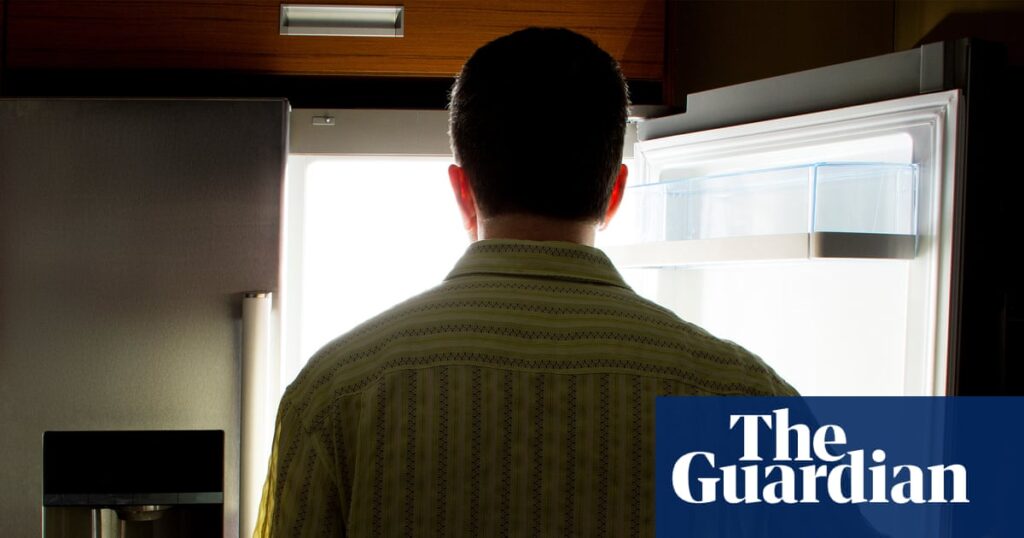
Have a glass of warm milk. No, a cup of herbal tea. Eat carbs, but only the right carbs. Have fats, but not too much. Have a filling meal. No, not that filling. Eat early, but not too early or you’ll get hungry again later. The quest for the perfect sleep-inducing diet can be as elusive as a good night’s sleep itself. Amid a global shortage of quality rest, with
48% of Australian adults reporting at least two sleep-related problems
, dietary habits are emerging as a crucial factor in determining whether one wakes up refreshed or regretful.
Some of the most insightful research into how meal timing, size, and quality affect sleep comes from those who work through the night. Dr. Charlotte Gupta, a research psychologist at CQUniversity in Adelaide, has been studying how different eating patterns impact shift workers’ performance. Her primary advice for a good night’s sleep is to eat well before bedtime.
“We’re not primed to be digesting food at night,” Gupta says. A meal eaten too close to sleep forces the body to focus energy and resources on digestion, when it should be resting and performing other tasks that take place while we rest.
Timing and Meal Size: Key Factors for Sleep
The ideal is to consume your last meal at least two hours before going to sleep, avoiding late-night snacks or midnight raids on the fridge. The size of this final meal is also significant. Ideally, a larger meal should be consumed in the middle of the day when light exposure primes our bodies for digestion, leaving a smaller meal for the evening.
However, this evening meal shouldn’t be too small. “We don’t want it to be so small for dinner that you feel really hungry during the night, that your body’s going to wake you up and want food,” Gupta advises.
What to Eat: The Nutritional Debate
When it comes to what to eat for a good night’s sleep, the answer is less definitive. Dr. Elizabeth Machan, an exercise physiologist and nutritionist at the Woolcock Institute of Medical Research and the University of Sydney, notes that while there is no perfect recipe for the evening meal, certain trends are emerging.
There is some evidence that higher-fat meals are more filling, potentially leading to more restful sleep. However, diets high in fat are also linked to shorter sleep duration. Similarly, despite the notion that carbs before bedtime are bad, some studies suggest that a carbohydrate-rich meal can help people fall asleep faster.
Machan emphasizes the importance of including vegetables in the evening meal to slow the digestive process. “Your gut’s going to be exposed to those nutrients for longer, it’ll have a better chance of absorbing them,” she says.
The Role of Micronutrients and Light Exposure
There is growing interest in micronutrients like the amino acid tryptophan, found in foods such as eggs, tofu, salmon, milk, turkey, and some nuts and seeds, which can convert into the sleep hormone melatonin. While some studies suggest that increasing tryptophan intake might improve sleep quality, Machan remains skeptical, arguing that light exposure plays a more critical role in melatonin regulation.
“You’re not going to make [melatonin] if you’re sitting in light – it’s a signal that we’re not needing to go to sleep, that it’s daytime,” she explains.
The Complex Relationship Between Diet and Sleep
Exploring the diet-sleep connection reveals a complex, two-way relationship. Dr. Jen Walsh, director of the Centre for Sleep Science at the University of Western Australia, notes that studies linking late meal times with poor sleep often measure sleep quality over a month rather than a single night.
“I think what it’s telling us is that individuals who have poorer sleep are more likely to eat later in the evening,” Walsh says.
While it might seem that eating later causes poorer sleep, it could also be that those with poor sleep habits are more inclined to eat later. “It’s potentially [the case] that people who eat later have worse health behaviors in general,” she adds.
Ultimately, like many health topics, achieving good sleep seems to circle back to maintaining a healthy diet and lifestyle. “I say that sleep impacts diet and it also impacts exercise, so really we need to be getting the sleep right, and it will get everything else right,” Walsh concludes.





